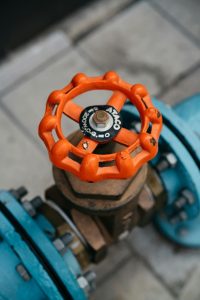Table of Contents
ToggleWhen it comes to industrial valve selection, ball valves with flanged end connections offer a robust solution with some distinct benefits. While threaded and socket weld ends have their place, flanged ball valves rise above for many demanding services and critical applications.
The rugged flanged body design, easy maintenance, and versatility in materials/configurations make these valves a trusted choice across countless facilities. If you’re considering a new ball valve installation, it’s worth exploring if a flanged option is the optimal fit.
Flange Ball Valve – Key Benefits
If you are wondering, “Are flange ball valves better?,” here are some of the key advantages that flanged ball valves can provide over alternative end connections:
- Ability to Withstand Higher Pressures
With their sturdy two-piece body construction, flanged ball valves can handle significantly higher pressure ratings compared to threaded units. The flanges create a blowout-proof design by containing forces within the rigid body assembly.
Some flanged valves achieve pressure ratings above 5,800 psi for harsh, severe-duty applications. High-integrity pressure boundaries are critical for applications like oil/gas production, steam systems, chemical processing plants and more. Flanged connections provide the required safety margins.
- Full Bore Design for Minimum Flow Restriction
Flange end ball valve typically features a full-bore design where the inner ball cavity matches the pipe’s inner diameter. This open area allows an unrestricted flow path when open with minimal pressure drop or flow resistance.
Other end connection types may utilize reduced ports, venturi shapes or plugs which can impede flow and increase turbulence. The flanged full-bore configuration is ideal for slurries, high-volume utility services, and applications where head loss needs to be minimized.
- Simplified Maintenance and Inline Removal
Perhaps the biggest advantage of flanges is easy valve removal from the pipeline without hot-tapping or line breaks. The bolted end connections enable quick disassembly for maintenance or replacement by simply unbolting the flanges.
This eliminates the need for pipe cutting, threading, re-welding and other invasive & costly procedures. In-line maintainability is a major benefit for critical services, reducing costly downtime. Easy access also simplifies internal inspection, repacking, gasket replacement and part changeouts.
- Ability to Handle Extreme Temps and Medias
Flanged construction allows for a wide selection of valve body materials and trims to handle corrosive media and extreme temperatures. Options include carbon steel, stainless, high-nickel alloys, titanium and special metal/lining combinations.
These robust metallurgy choices provide excellent chemical resistance and enable flanged ball valves to operate reliably in the harshest refinery, chemical and slurry applications. The flanged design avoids potential weaknesses from threaded connections in these services.
Conclusion
While there are applications where threaded or socket weld connections are suitable, flanged ball valves provide undeniable advantages for many industrial uses. Their pressure containment, flow characteristics, maintainability and material flexibility make them an excellent choice for critical services.
Specify a flanged ball valve from a trusted manufacturer like Xintai Valve Company. With end connections built to global standards like ANSI, ASME and more, you can ensure long-lasting, reliable performance.
Don’t compromise your process piping with subpar valves – insist on the safety and quality of Xintai’s flanged offering.










